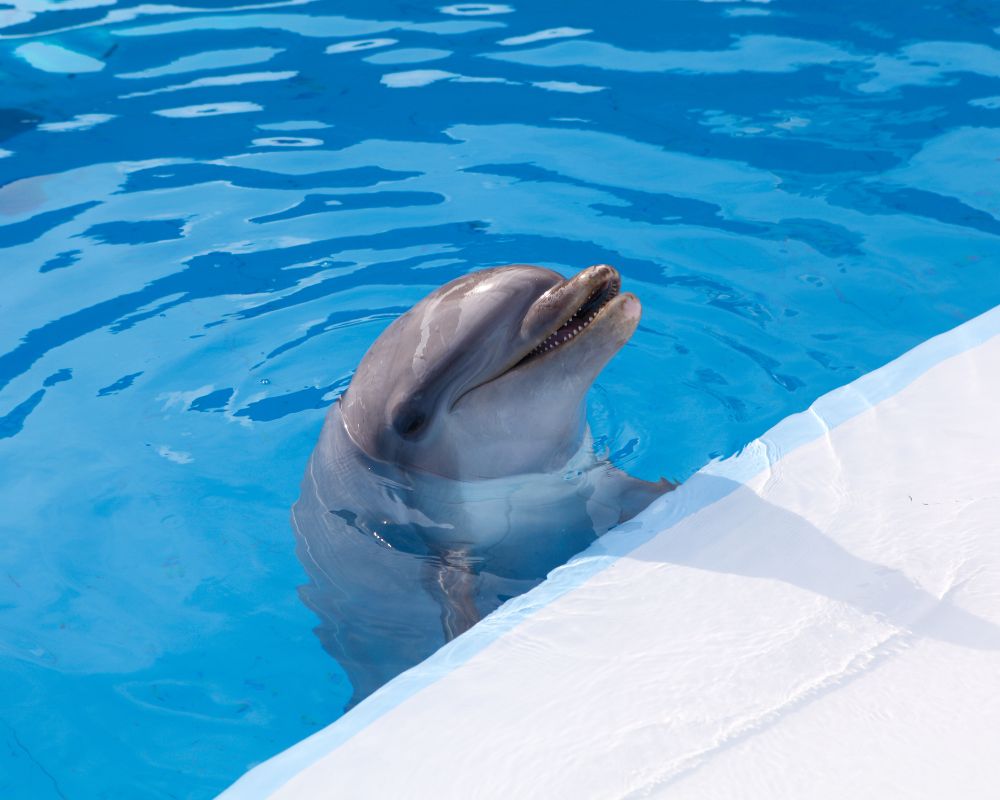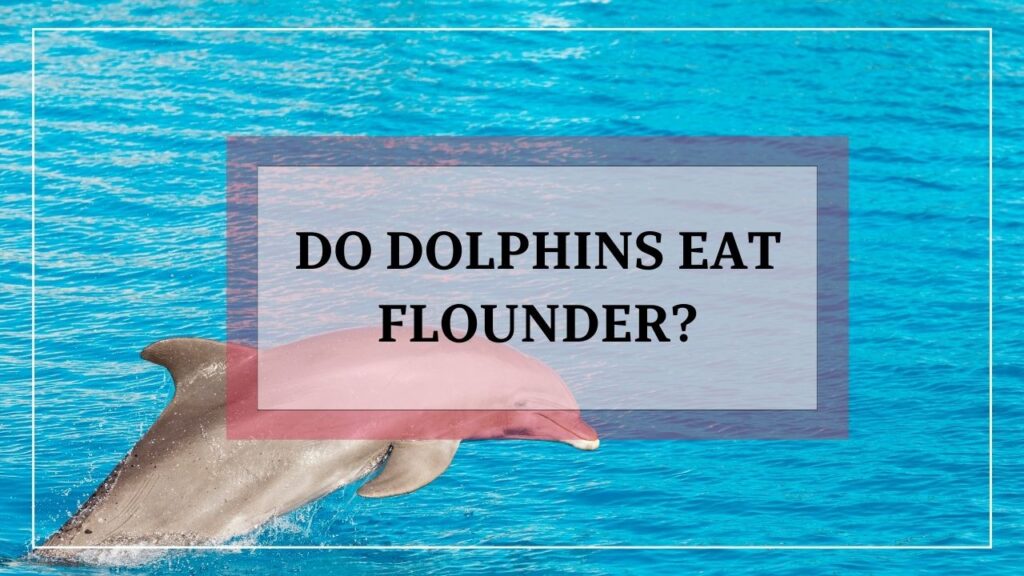One of the most common questions that get asked about dolphins is whether they eat flounder. It’s a valid question, considering how important both species are to the ocean’s ecosystem.
Dolphins are known for their varied diet, and flounder is certainly a species that could be on their menu. But is it true? Do dolphins actually eat flounder?
In this blog post, we’re going to explore the feeding habits of dolphins and the possibility of them eating flounder. We’re sharing with you some information about dolphin feeding habits and are giving you a definitive answer to the question: Do dolphins eat flounder? So, let’s dive in and discover the truth behind this intriguing question.
Do Dolphins Eat Flounder?

The short answer is yes, dolphins do eat flounder. In fact, flounder is just one of many species of fish that dolphins will eat. These marine mammals have a varied diet that includes everything from small fish to squid and even octopus.
When it comes to feeding habits, dolphins are opportunistic predators. This means they will eat whatever is available to them in their environment.
While some species of dolphins may have specific dietary preferences, such as the killer whale’s preference for eating seals, dolphins, in general, are adaptable and will eat what is readily available to them.
In terms of flounder specifically, there is plenty of evidence to support the notion that dolphins do indeed eat them. For example, researchers have observed bottlenose dolphins in the wild hunting and eating flounder.
Additionally, when studying the stomach contents of dolphins, scientists have found traces of flounder and other flatfish.
It’s worth noting that not all species of dolphins eat flounder. Some species, such as the Amazon river dolphin, have a more specialized diet that may not include flounder. However, for many species of dolphins, flounder is certainly on the menu.
So, which species of dolphins are known to eat flounder? Well, according to research, bottlenose dolphins are one species that has been observed hunting and eating flounder.
In fact, in some areas, bottlenose dolphins are known for their flounder-hunting prowess. Other species of dolphins that have been observed eating flounder include common dolphins and Risso’s dolphins.
How Do Dolphins Hunt Flounder?
Dolphins are incredibly skilled hunters, and their feeding techniques vary depending on the type of prey they are after. When it comes to floundering, dolphins have developed some unique hunting techniques that allow them to capture these flatfish with ease.[1]
One of the most common techniques used by dolphins when hunting flounder is called “fish whacking.” This involves the dolphin using its tail to create a shockwave that stuns the flounder, making it easier to catch.
The dolphin will then use its beak to grab the flounder and swallow it whole.
Another technique used by dolphins when hunting flounder is called “mud ring feeding.” This involves the dolphin swimming in circles around a school of flounder, creating a vortex that stirs up the mud on the bottom of the ocean floor. As the mud clears, the confused flounder are easier to see and catch.
Interestingly, dolphins are also known to work together when hunting flounder. In some cases, dolphins will use a “corral” technique, where they work together to drive a school of flounder into a small area, making it easier to catch them.
This type of cooperative hunting behavior is not uncommon among dolphins and is just one of the many ways they have adapted to their environment to become successful predators.
When it comes to the location and timing of dolphin flounder hunting, this can vary depending on the species and location.
In some areas, such as the coast of Florida, bottlenose dolphins are known for their flounder-hunting abilities, and they can be seen hunting these fish year-round.
Other species of dolphins may have different hunting habits and may target flounder during specific seasons or in specific locations.
Benefits and Risks of Dolphin Flounder Hunting
So, is it safe for dolphins to feed on flounder or not? Let’s check if the benefits outweigh the risks:
Benefits Of Dolphin Flounder Hunting
Dolphin flounder hunting plays an important role in the marine ecosystem. By hunting and eating flounder, dolphins help to control the population of these fish, which can prevent overpopulation and maintain a healthy balance in the ecosystem.
In addition, dolphins are apex predators, which means that they are at the top of the food chain. By hunting and eating flounder, dolphins are also able to maintain their own health and survival.
Risks Of Dolphin Flounder Hunting
While dolphin flounder hunting can have benefits for the ecosystem, there are also some risks involved. One of the biggest risks is the potential for overfishing.
If dolphins were to hunt and eat too many flounder, this could lead to a decline in the flounder population, which could have a ripple effect throughout the entire ecosystem.
Another risk is the potential for human interference. Human activities such as overfishing, pollution, and coastal development can all impact the availability of flounder for dolphins to hunt.
This can disrupt the delicate balance of the ecosystem and have negative effects on both dolphins and flounder populations.
Human Impact On Dolphin Flounder Hunting
As mentioned, human activities can have a significant impact on dolphin flounder hunting. Overfishing and pollution can reduce the availability of flounder for dolphins to hunt, while coastal development can disrupt important habitats and migration patterns.
Conclusion
In conclusion, dolphins are known to eat flounder, along with a variety of other fish and marine creatures.
They use their intelligence and advanced hunting techniques to catch their prey, including flounder. While dolphin flounder hunting plays an important role in the ecosystem, there are also risks involved.

